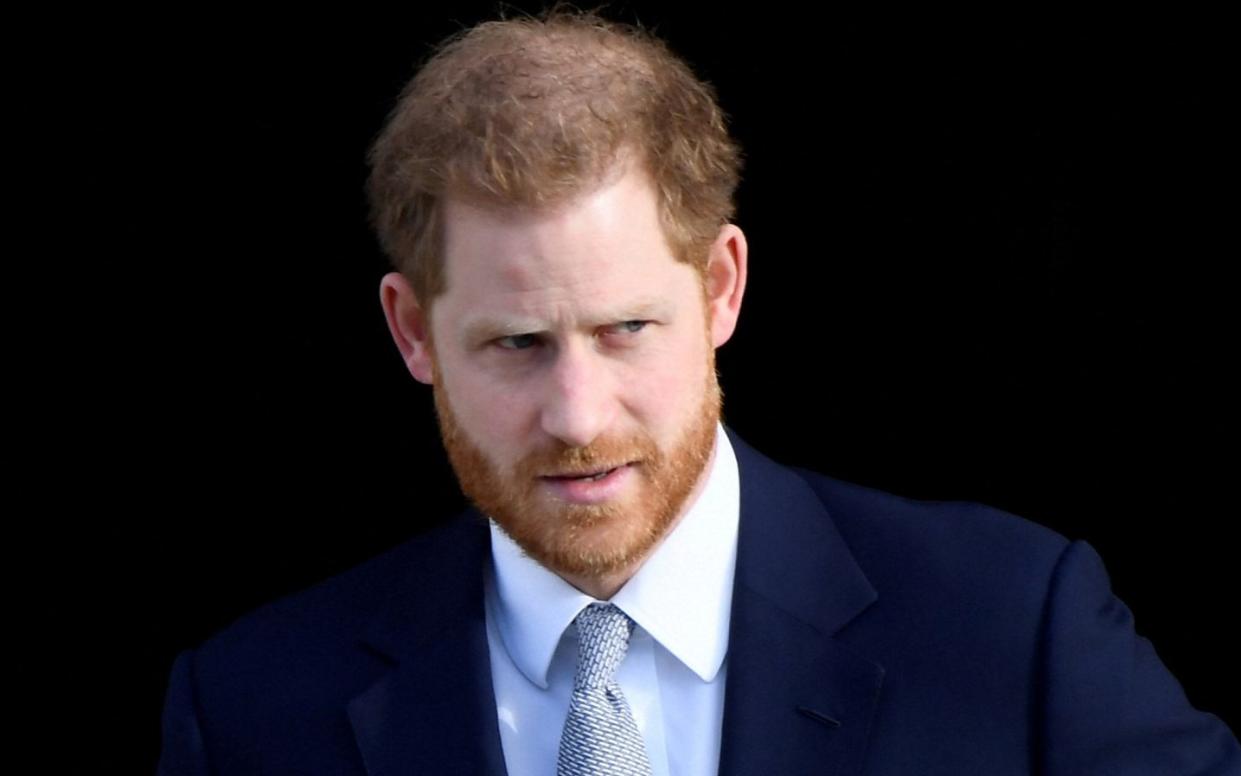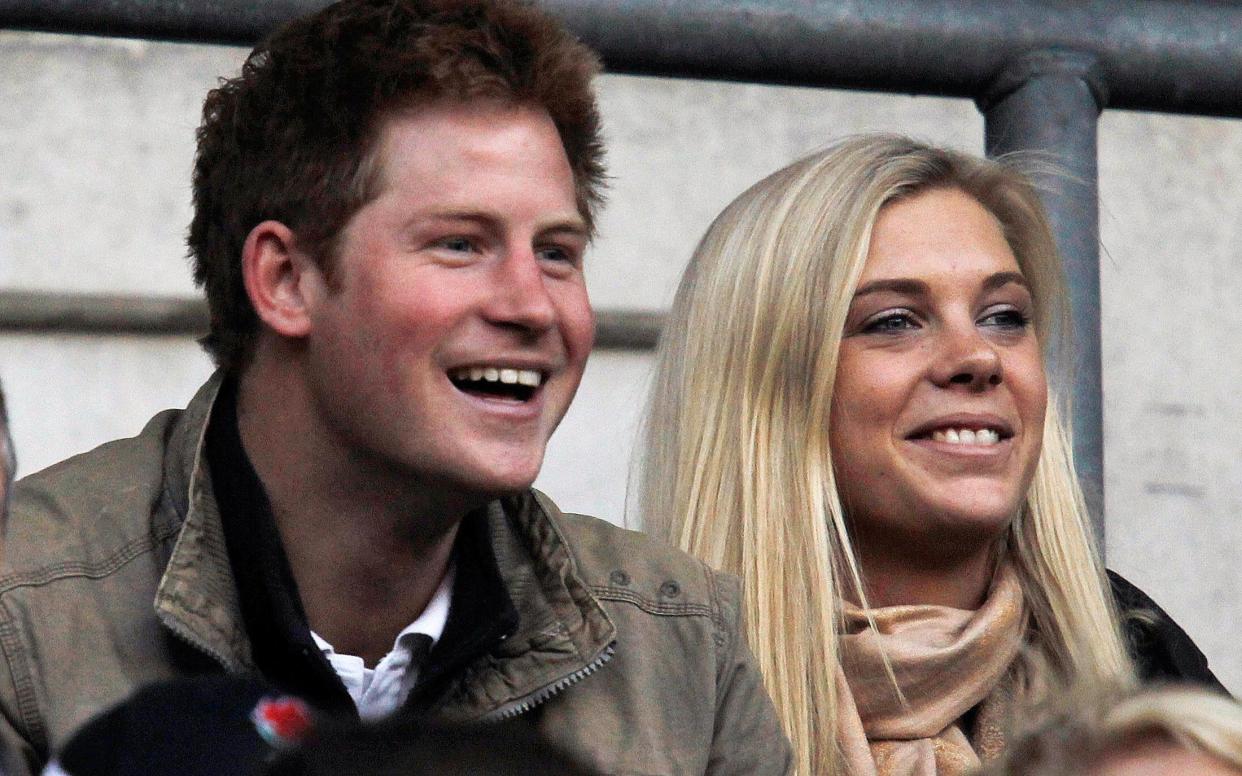Prince Harry was victim of phone hacking by Mirror newspapers, judge rules

The Duke of Sussex was a victim of phone hacking, a High Court judge has ruled, as he said the practice continued at Mirror Group Newspapers even during the Leveson Inquiry.
Mr Justice Fancourt said phone hacking was “widespread and habitual” at the publisher’s three titles from 1998 and remained “extensive” from 2006 until 2011, “even, to some extent” during Sir Brian Leveson’s inquiry into media standards.
Prince Harry, 39, sued MGN over 148 articles he alleged had been obtained illegally, revealing when he gave evidence in June that he was motivated by a desire to protect his wife, Meghan.
The judge found that 15 of 33 articles selected for examination at trial, each written between 1996 and 2009, were the product of phone hacking or unlawful information gathering.
But he warned that Harry’s “tendency to assume” that all stories written about him were obtained illegally was misplaced.
He concluded that two MGN directors, Sly Bailey, CEO, and Paul Vickers, group legal director, knew about hacking but “turned a blind eye” and did not inform the board.
Instead of properly investigating, he said “it was concealed from the board, from Parliament in 2007 and 2011, from the Leveson inquiry, from shareholders, and from the public for years”.
The judge found “compelling evidence” that the editors of each Mirror newspaper “knew very well” that phone hacking was being used and were “happy to take the benefits of it”.
‘A great day for truth’
The Duke was awarded a total £140,600 in damages, just a fraction of the £440,000 he had sought.
In a lengthy statement read outside the court by his barrister, David Sherborne, he hailed it “a great day for truth as well as accountability” and urged the Metropolitan Police to investigate.
He said the victory justified his “slow and painful” fight for justice against the media in the courts and vowed to plough on, despite the impact on his family.
“This case is not just about hacking,” he said. “It is about a systemic practice of unlawful and appalling behaviour, followed by cover-ups and destruction of evidence, the shocking scale of which can only be revealed through these proceedings.
“I respectfully call upon the authorities, the financial regulator, the stock market who were deliberately deceived by Mirror Group, and indeed the Metropolitan Police and prosecuting authorities to do their duty for the British public and to investigate bringing charges against the company and those who have broken the law. Today’s ruling is vindicating and affirming.
“I’ve been told that slaying dragons will get you burned. But in light of today’s victory and the importance of doing what is needed for a free and honest press, it is a worthwhile price to pay. The mission continues.”
The Duke singled out Piers Morgan, the former Mirror editor who has long been a vocal critic of both him and his wife, adding: “The court has found that Mirror Group’s principle board directors, their legal department, senior executives, and editors, such as Piers Morgan, clearly knew about or were involved in these illegal activities
“Between them, they even went as far as lying under oath to Parliament, during the Leveson inquiry, to the stock exchange, and to us all ever since.”
Prince Harry articles
The 386-page ruling is the first major judgment to be handed down in the Duke’s crusade against tabloid newspapers, with other claims against the publishers of the Daily Mail and The Sun still moving slowly through the courts.
The MGN articles cited in his claim concerned, variously, his relationship with his family and ex-girlfriend Chelsy Davy, a few injuries and illnesses, his military service and allegations of drug use.
The high-profile case was heard throughout May and June, when the Duke made history by taking to the witness stand, the first senior member of the Royal family to do so in 132 years.
The judge handed down his ruling in a packed courtroom on Friday.
He concluded that the Duke’s phone was hacked “on occasions from about the end of 2003 to April 2009” and that the practice was “probably carefully controlled by certain people at each newspaper”.
He said: “I have found the Duke’s case of voicemail interception and unlawful information gathering proved in part only.
“I found that 15 out of the 33 articles that were tried were the product of phone hacking of his mobile phone or the mobile phones of his associates, or the product of other unlawful information gathering.”
The judge added: “There was a tendency for the Duke in his evidence to assume that everything published was the product of voicemail interception because phone hacking was rife within Mirror Group at the time.
“But phone hacking was not the only journalistic tool at the time, and his claims in relation to the other 18 articles did not stand up to careful analysis.”
The judge said there were also a number of invoices, unconnected to published articles, that he considered evidence of unlawful gathering of the Duke’s private information.
Chelsy Davy
The Duke’s phone was hacked on occasion in a “targeted and controlled way” that was overseen by just a few journalists, the judge found.
“His phone was probably targeted on occasions when there was an important storyline that MGN journalists were chasing, such as the ups and downs of the Duke’s relationship with Ms Davy.

“It was done carefully and with control (more so after 2006), given the evident risks, but it nevertheless took place on occasions.”
While the hacking of Harry’s phone did not start until 2003 at the earliest, his associates were likely targeted from 2002.
“Less care was taken with Ms Davy’s phone,” the court found. “She and her family and friends were clearly not considered off limits and I am satisfied that she was subjected to UIG and VMI (voicemail interception) regularly, as a means of obtaining information about their relationship and the Duke’s life.”
The same applied to the Duke’s other girlfriends and close friends, in particular Guy Pelly, Natalie Pinkham and Tiggy Legge-Bourke.
The judge noted the “corrosive effect of the intrusion” regarding the Duke’s relationship with Ms Davy which he acknowledged was not fully reflected in the modest damages awarded.
The amounts are lower than they would otherwise have been because Harry did not perceive the effect at the time.
Omid Scobie
Omid Scobie, the Sussexes’ biographer, told the court during the trial that he had been asked to hack phones when he was on work experience at the Sunday People.
He said that during a separate stint of work experience at the Daily Mirror in 2002, he overheard editor Piers Morgan being told that a story about Kylie Minogue had come from voicemail messages.
The judge said he found Mr Scobie to be a “straightforward and reliable witness” and accepted what he said about Piers Morgan’s involvement in the Kylie story, noting: “No evidence was called by MGN to contradict it.
Damages
Damages were awarded in respect of each article and invoice where unlawful information gathering was proved and a further sum to compensate “fully” for the distress that the Duke suffered as a result.
The judge said the latter amount awarded was “modest” because he recognised that MGN was not responsible for “all” unlawful activity directed at the Duke over the years, noting that much of the “oppressive behaviour” of the press was not unlawful at all.
A sum for aggravated damages was awarded to reflect “the particular hurt and sense of outrage” that the Duke felt because two directors knew about the illegal activity but “turned a blind eye to what was going on, and positively concealed it”.
He added: “Had the illegal conduct been stopped, the misuse of the Duke’s private information would have ended much sooner.”
The judge accused Mr Vickers of lying after he claimed that News of the World hacker Glenn Mulcaire was “one rogue reporter” and that he did not believe the practice was taking place at MGN.
“The idea that someone in his position, an insider, was taken in by a lie of that kind told by another newspaper, is fanciful,” he said.
A sum of £20,000 was awarded for the “cumulative and lasting damage to the Duke’s wellbeing”.
Leveson inquiry
The judge said it was “clear” that MGN did not want Sir Brian Leveson to have a full picture of the extent to which private investigators were being used by its newspapers.
“My conclusion is that VMI (voicemail interception or phone hacking) remained an important tool of the kind of journalism that was being practised at all three newspapers up to and to a limited extent even during the Leveson inquiry, and it was fed by extensive UIG (unlawful information gathering).
“It was still used to a significant extent, but not quite as habitually as before August 2006.”
The judgment added: “MGN emerged largely unscathed from the Leveson inquiry. The decision was obviously taken at a high level that MGN’s interests were best served by keeping a lid on as much as possible of what had happened.”
Other claimants
The Duke’s case was heard alongside similar claims by actor Michael Turner, who is known professionally as Michael Le Vell and best known for playing Kevin Webster in Coronation Street, actress Nikki Sanderson and comedian Paul Whitehouse’s ex-wife Fiona Wightman.
Claims brought by Ms Sanderson and Ms Wightman were dismissed by the judge because they were made too late, despite a finding that some of their complaints were proved.
Mr Turner was awarded £31,650 in damages after the judge ruled his phone hacking and unlawful information-gathering case was “proved only to a limited extent”.
The findings made in relation to all four will be used to determine the outcome of dozens of claims brought by others against MGN including actor Ricky Tomlinson, the estate of the late singer George Michael, ex-footballer and television presenter Ian Wright and Girls Aloud singer Cheryl.


